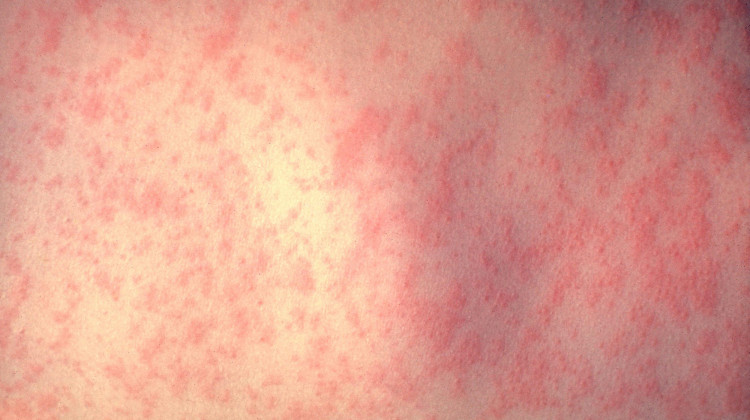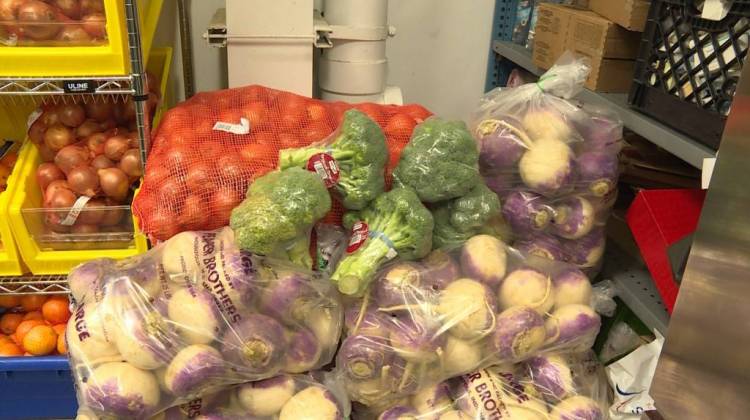
If infected at the museum, symptoms should appear by Monday, April 22, through Monday, April 29, according to a release from the health department.
Courtesy of Centers for Disease Control and PreventionSolar eclipse gazers at the Indianapolis Children’s Museum may have been exposed to measles from an out-of-state visitor on April 8, according to the Marion County Public Health Department. Public health risk is low.
If infected at the museum, symptoms should appear by Monday, April 22, through Monday, April 29, according to a release from the health department.
Symptoms include fever, cough, a runny nose, “pink eye” or red, watery eyes, small white spots in the mouth called Koplik Spots, or a rash that starts at the hairline and spreads to the rest of the body. The rash presents as flat, red spots.
People are infectious four days before the onset of a rash to about four to five days afterward. The infection spreads through water droplets released by an infected person’s sneezes or coughs and can last in the environment for two hours.
Measles is an extremely contagious virus but most infections are mild or moderate. Three or more cases is considered an outbreak by the U.S. Centers for Disease Control and Prevention. Children under five, pregnant people, and immunocompromised people are at higher risk for serious illness, which can include pneumonia, brain inflammation, or death.
Measles is a virus, which means that antibiotics will not work and treatment is symptomatic. The only way to protect against the disease is to get the Measles, Mumps, Rubella (MMR) vaccine, which is widely available. In the 2022-2023 school year, Indiana’s vaccine coverage rate for kindergarteners was 92 percent.
Indiana’s most recent measles case was recorded in February 2024 in Lake County. It was the state’s first case in five years. No cases have been reported in Marion County this year.
In the United States, measles has been officially eliminated since 2000, meaning that there is no transmission of the virus within the country. Instead, it’s introduced by travelers who bring it back with them from abroad and infect unvaccinated people, causing outbreaks.
As of April 18, 125 total cases from 17 states and New York City have been reported this year, according to the CDC, with 83 percent of the cases traced to people with unvaccinated or unknown status.
In 2019, two prolonged outbreaks occurred in lower-vaccinated communities in New York and New York City. This caused a spike in measles cases to its highest number in over 20 years, resulting in over 1,200 cases in 31 states. These prolonged outbreaks threatened the disease’s elimination status, according to an April 11 CDC report that examined cases between January 1, 2020 and March 28, 2024.
If you notice symptoms, stay at home and immediately contact a health care provider, clinic or emergency room. The county health department urges people with suspected cases to call ahead before arriving so that providers can make preparations to protect other patients from infection.
The Marion County Public Health Department also provides low-cost vaccines at the ACTION Center and four other locations. Most doctor’s offices also offer the vaccine.
Two doses “should provide lifelong protection against a measles infection,” the health department’s release stated. “People born prior to 1957 are presumed to be immune to measles.”
Contact data journalist Zak Cassel at zcassel@wfyi.org.
 DONATE
DONATE








 Support WFYI. We can't do it without you.
Support WFYI. We can't do it without you.